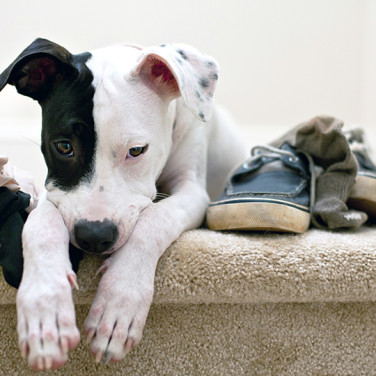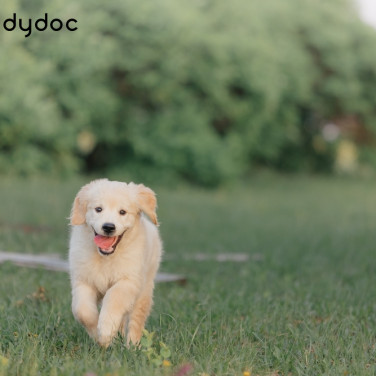FOOD
Can Dogs Eat Cheese? Cottage? Mozzarella?
페이지 정보
본문


Can dogs eat cheese? YES!
Dogs love cheese and it is okay to give it to them in moderation, depending on the type. Cheese can make for a great vessel for hidden medication or supplements your dog will be too busy enjoying the cheese to notice! Cheese is rich in nutrients such as protein, calcium, and vitamins, which can be beneficial for a dog's health.
Cheese contains less lactose than cow's milk, but even small amounts can cause stomach problems for those who are severely lactose intolerant. Additionally, cheese is high in fat and calories, and some types contain a lot of salt, which can have negative impacts on health if consumed in large quantities. The healthiness of cheese depends on the type; cottage cheese, Swiss cheese, cheddar cheese, and mozzarella cheese can be consumed in small amounts as snacks, but blue cheese and feta cheese can be toxic to dogs.

Nutritional information on cheese for dogs
Cheese contains nutrients such as protein, calcium, vitamin A, essential fatty acids, and biotin.
Key nutritional components of cheese for dogs:
-
Protein
Protein is an essential nutrient for providing amino acids, promoting muscle growth, and producing energy.
-
Calcium
It is an essential nutrient for growth and helps to form and maintain bones and teeth.
-
Vitamin A
Your pet's body converts beta-carotene into vitamin A, which strengthens the immune system and keeps skin, coat, and vision healthy.
-
Vitamin B
Supports healthy metabolic activity.
Health risks and cautions to note when feeding dogs cheese
-
Lactose intolerance
Lactose, a naturally occurring sugar found in dairy products, needs to be broken down by the enzyme called lactase in order for it to be digested. The amount of lactose that can be digested depends on the amount of lactase present in the body. Many dogs do not digest lactose well because they lack this enzyme. Puppies have higher levels of lactase to digest their mother's milk, but these levels may decrease after weaning. The amount of lactose that can be digested may also vary based on the dog's genetics, and not all adult dogs are lactose intolerant. While cheese contains less lactose than cow's milk, even small amounts can cause digestive problems in dogs with severe lactose intolerance. Therefore, when introducing cheese to a dog's diet, it is important to only give a small amount and observe for any adverse effects.
Symptoms of lactose intolerance:
- Diarrhea
- Vomiting
- Abdominal pain
- Bloating
-
Fat and salt content
Cheese is a high-fat, high-salt food. Consuming too much fat can increase your risk of weight gain, obesity, and even pancreatitis in severe cases. Additionally, excessive salt intake in cheese can strain your kidneys. While sodium is an essential nutrient for dogs, they typically get enough through their regular food, so consuming excess amounts can have negative health consequences.
-
Vitamin A
Your pet's body converts beta-carotene into vitamin A, which strengthens the immune system and keeps skin, coat, and vision healthy.
-
Can dogs eat cheesecake, cheez its, and other cheese products?
Avoid cheesecakes and other treats that are made with cheese, as they contain ingredients that are toxic to dogs, such as artificial sweeteners and salt. It is always necessary to check the label of human foods before serving them.
-
Food allergy
As with any other food, the first time feeding anything may cause an allergic reaction and cause intolerance. It is recommended to give a small amount of the first food to be tested and monitored for signs of allergy. If your puppy shows any signs of an allergy, it is recommended to stop feeding and contact your veterinarian immediately.
Signs of an allergic reaction to look out for:
- Skin problems: hives, facial swelling, itchiness
- Digestive problems: vomiting and diarrhea
- Shortness of breath

What cheeses can dogs eat?
-
Dogs can eat cottage cheese:
The best cheese to feed your dog is cottage cheese. It is lower in fat and sodium than other cheeses and contains less lactose, so it has the lowest risk of gastrointestinal upset.
-
Dogs can eat Swiss cheese:
Because it is low in lactose, it is okay to feed swiss cheese in small amounts.
-
Dogs can eat cheddar cheese:
Cheddar cheese is low in lactose, so a small serving is fine to consume.
-
Dogs can eat mozzarella cheese:
Compared to most cheeses, it is okay to feed it in small amounts as it is lower in fat and sodium.

What cheeses can dogs not eat?
-
Dogs cannot eat blue cheese:
There is a mold that is toxic to dogs and can cause symptoms such as vomiting, diarrhea, and seizures if ingested incorrectly.
-
Dogs cannot eat cream cheese:
Low in lactose but high in fat, calories, and sodium, some cream cheese products may contain additives that are toxic to dogs.
-
Dogs cannot eat goat cheese:
Goat's milk contains less lactose than normal milk, but it is high in fat, so it is not recommended to feed it.
-
Dogs cannot eat brie cheese:
Not recommended due to its high fat content.
-
Dogs cannot eat feta cheese:
High in fat, lactose, and sodium, is not a good combo for dogs.
-
Dogs cannot eat parmesan cheese:
Since it is soaked in salt water during the making process, it is recommended to avoid it due to its high salt content.
-
Dogs cannot eat any cheese with additives:
It is not recommended to feed cheese made with other ingredients such as peppers, herbs, garlic, etc., as they will likely contain ingredients that are toxic to dogs.
Curious about what else is safe for dogs to eat?

Does your dog also look up at you with those puppy dog eyes whenever you are snacking on something? You know foods like chocolates should not be shared with them but do you search the Internet every time if it’s okay to share a bite of whatever you are eating? The Buddydoc Food Dictionary provides information on hundreds of foods that we consume and informs you whether it is safe for them to consume and the nutritional benefits for your pet. If you're curious about other foods, try searching on Buddydoc!













